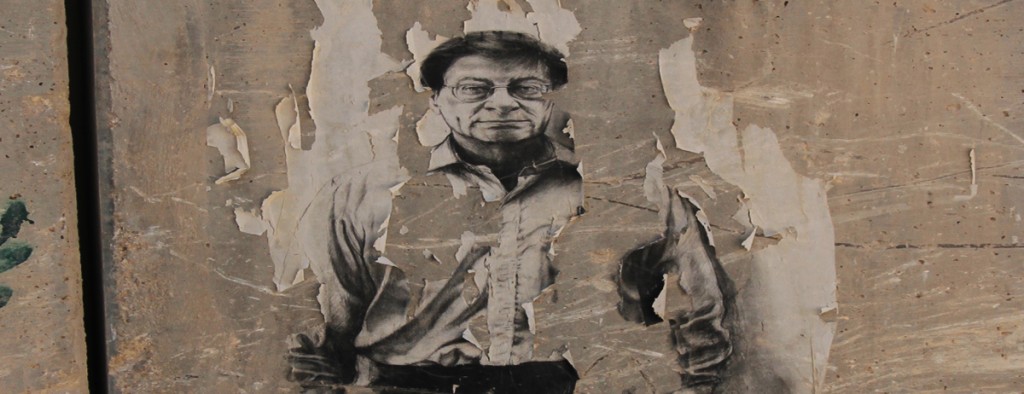
I first heard about Mahmoud Darwish the year I visited Palestine. Although it’s a relatively recent connection, I’ve been trying to make up for lost time – actively collecting and reading as much of his stunning repertoire as possible. My introduction came in the form of a faded photocopy of his face. It had been glued to an empty cement wall on a quiet street in Bethlehem’s old city. It was the only image amid a tapestry of community notices and advertisements and it was clear it had been left to weather there for some time. The corners of the white A4 sheet had yellowed and the black ink sported the bluish tinge of a day-old bruise. It was also clear that care had been taken not to obscure the image; the otherwise erratic display of community notices and adverts had been deliberately positioned elsewhere.
Days later, I noticed the same portrait hanging next to a framed handicraft in a friend’s living-room in Aida Camp. I mentioned that I recognised the man and was swiftly inducted into an improvised yet intensive educational program about the talented wordsmith. This first “lesson” went for hours and hours. I left my friend’s place late that evening filled with facts, verse and the clear understanding that Mahmoud Darwish was one of the most loved Palestinians in Palestine. That Mahmoud Darwish was considered by many to be THE Palestinian poet.
As a teenager I was obsessed with poetry. I used to scrawl selected lyrics of my favourite punk/anarchic or socio-politically minded musicians on my school bag. These musicians were so important to me that my backpack became a kind of scientific screening tool. If a peer or passer-by could identify the verse, chances were we had the potential to be friends; hell, even soulmates. Alongside the textbooks and ring-bound folder, I would always find the space to carry around at least two pre-loved copies of the complete works of Eliot, Keats, Plath or quite controversially, Hughes. Back then, my taste tended to be overtly sexual, political or confessional. Wordy fare which tapped into the angst I was feeling and the injustice I had started to understand was happening. By my mid-twenties, my feelings for poetry were different. We had become estranged and there was nothing remotely star-crossed about it. I’m pretty sure this happened as a result of having attended one too many Sydney spoken-word soirees.
It was Darwish who reignited this love affair. Thanks to his astoundingly good verse, poetry and I are once again united. That’s why recently when I was invited to collaborate on an arts project celebrating the work and significance of this extraordinary writer, I accepted with great enthusiasm. Before I delve into the scope of the project, here’s an English translation of a beloved Mahmoud Darwish poem spoken by my friends Mohammed Hamayel and Quds Manasra which we recorded late one night – not too long ago – at my apartment in Beit Sahour.
Audio clip: Adobe Flash Player (version 9 or above) is required to play this audio clip. Download the latest version here. You also need to have JavaScript enabled in your browser.
